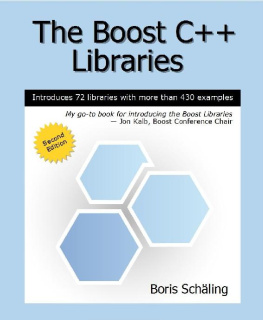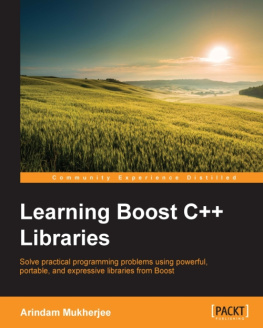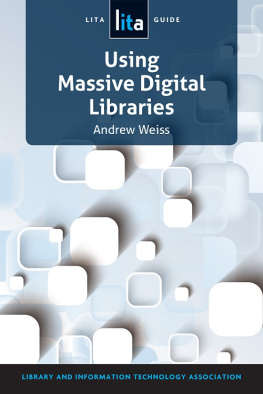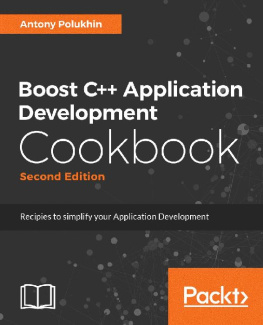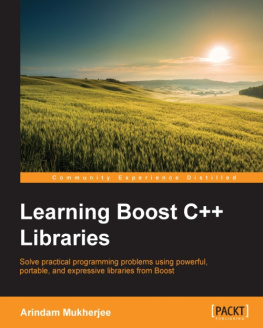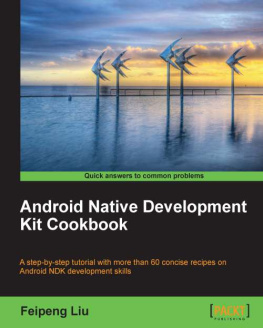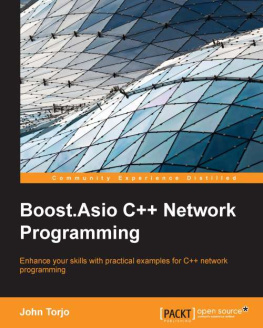Boris Schäling - The Boost C++ Libraries
Here you can read online Boris Schäling - The Boost C++ Libraries full text of the book (entire story) in english for free. Download pdf and epub, get meaning, cover and reviews about this ebook. year: 2014, genre: Computer. Description of the work, (preface) as well as reviews are available. Best literature library LitArk.com created for fans of good reading and offers a wide selection of genres:
Romance novel
Science fiction
Adventure
Detective
Science
History
Home and family
Prose
Art
Politics
Computer
Non-fiction
Religion
Business
Children
Humor
Choose a favorite category and find really read worthwhile books. Enjoy immersion in the world of imagination, feel the emotions of the characters or learn something new for yourself, make an fascinating discovery.
- Book:The Boost C++ Libraries
- Author:
- Genre:
- Year:2014
- Rating:3 / 5
- Favourites:Add to favourites
- Your mark:
The Boost C++ Libraries: summary, description and annotation
We offer to read an annotation, description, summary or preface (depends on what the author of the book "The Boost C++ Libraries" wrote himself). If you haven't found the necessary information about the book — write in the comments, we will try to find it.
The second edition contains more than 430 examples. All examples are as short as possible, but they are complete, so you can compile and run them as is. They show you what the Boost libraries offer and give you a head start on using the libraries in your own applications.
The goal of this book is to increase your efficiency as a C++ developer and to simplify software development with C++. The Boost libraries introduced in this book will help you write less code with fewer bugs and finish projects faster. You code will be more concise and self-explanatory and more easily adapted when requirements change.
The second edition is based on the Boost libraries 1.55.0 and 1.56.0 with the latter version having been released in August 2014. The examples are based on C++11 and have been tested with Visual Studio 2013, GCC 4.8 and Clang 3.3 on various platforms. For Boost libraries which were incorporated into the C++11 standard library, differences between Boost and the standard library are highlighted.
The Boost libraries are one of the most important and influential open source C++ libraries. Their source code is available under a permissive free software license. Several Boost libraries have been incorporated into the C++11 standard library. The Boost libraries are developed and supported by the Boost community - a worldwide developer community with a strong interest in pushing C++ boundaries further.
Boris Schäling: author's other books
Who wrote The Boost C++ Libraries? Find out the surname, the name of the author of the book and a list of all author's works by series.

